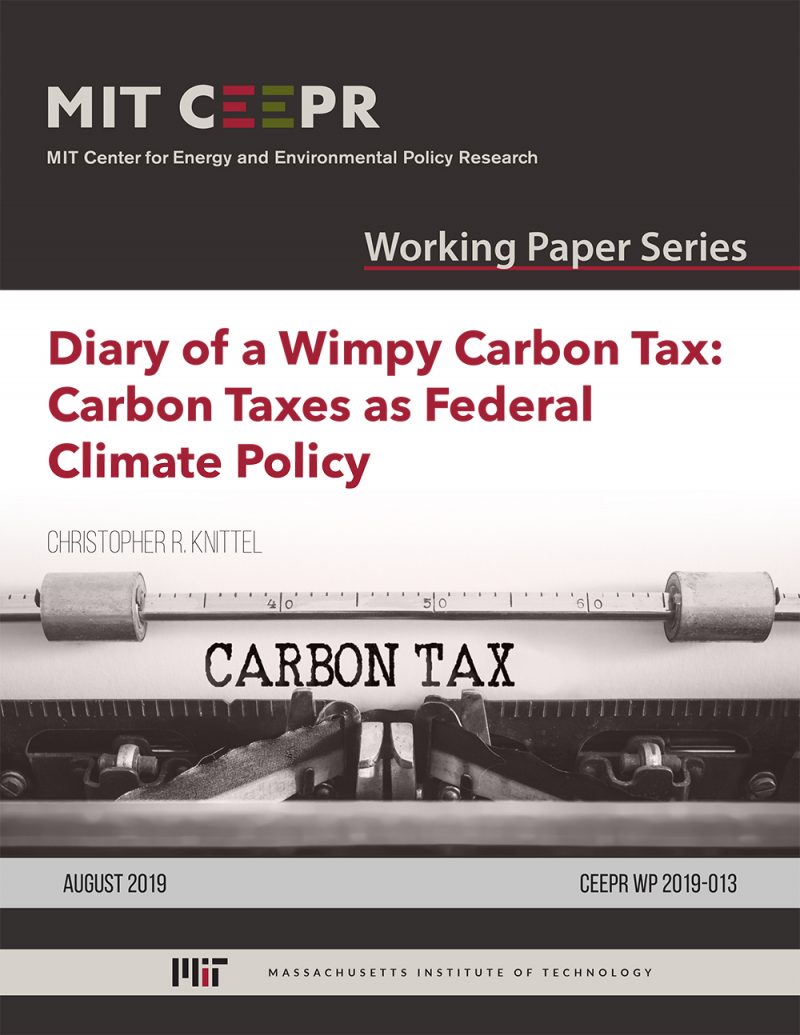Diary of a Wimpy Carbon Tax: Carbon Taxes as Federal Climate Policy
Christopher R. Knittel
August 2020
In this short note, I use MIT’s Emissions Prediction and Policy Analysis (EPPA) Model to calculate the carbon tax required to replace the major federal climate change policies that existed as of 2016: Corporate Average Fuel Economy (CAFE) Standards on light-, medium-, and heavy-duty vehicles; the Clean Power Plan (CPP); and the Renewable Fuel Standard (RFS). I first use the Regulatory Impact Analyses of each policy to estimate each policy’s respective greenhouse gas emission reductions in 2020, 2025, and 2030. Next, I use the EPPA model to simulate the carbon tax required to achieve the same emission reductions in each of the three benchmark years. The results suggest that a modest carbon tax can replace these three flagship climate change policies. If the carbon tax is applied to all greenhouse gases, adjusted for the gas’ respective global warming index, the required carbon tax in 2020 is roughly $7 per tonne. In 2025, the required tax increases to roughly $22 per tonne; in 2030 the required tax is roughly $36 per tonne. These results underscore the economic power of a carbon tax, compared to the economically inefficient policies currently in place.



